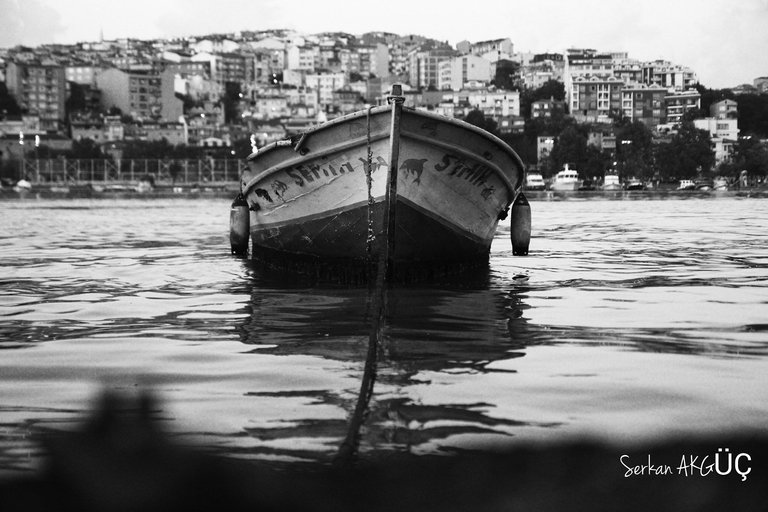
Eski adı ile Konstantinopolis şimdi ki adı ile İstanbul.Bir yarım ada ve eşsiz bir boğaza sahip.Hemen hemen her yerinden tarih çıkan efsaneler şehri.Burası Haliç bir diğer adı Altın Boynuz tarihi çok eskilere dayanır Cenevizliler,Bizanslılar ve Türkler buralar da yaşamış efsanelere konu olmuştur.
Archaeological records show a significant urban presence on and around the Golden Horn dating back to at least the 7th century BC, with smaller settlements going as far back as 6700 BC as confirmed by recent discoveries of ancient ports, storage facilities, and fleets of trade ships unearthed during the construction works of the Yenikapı subway station and the Marmaray tunnel project.
Indeed, the deep natural harbor provided by the Golden Horn has always been a major economic attraction and strategic military advantage for inhabitants of the area, and the Eastern Roman colonizers that established Nova Roma along its shores, which became, in order, Byzantium, Constantinople, and ultimately, Istanbul, were no different.
The Byzantine Empire had its naval headquarters there, and walls were built along the shoreline to protect the city of Constantinople from naval attacks. At the entrance to the Horn on the northern side, a large chain was pulled across from Constantinople to the old Tower of Galata to prevent unwanted ships from entering. Known among the Byzantines as the Megàlos Pyrgos (meaning "Great Tower" in Greek), this tower was largely destroyed by the Latin Crusaders during the Fourth Crusade in 1204. In 1348, the Genoese built a new tower nearby which they called Christea Turris (Tower of Christ), now called Galata Tower.
There were three notable times when the chain across the Horn was either broken or circumvented. In the 10th century the Kievan Rus' dragged their longships out of the Bosphorus, around Galata, and relaunched them in the Horn; the Byzantines defeated them with Greek fire. In 1204, during the Fourth Crusade, Venetian ships were able to break the chain with a ram. In 1453, Ottoman Sultan Mehmed II, having failed in his attempt to break the chain with brute force, instead used the same tactic as the Rus'; towing his ships across Galata over greased logs and into the estuary.
After the Ottoman conquest of Constantinople in 1453, Mehmed II resettled ethnic Greeks along the Horn in the Phanar (today's Fener). Balat continued to be inhabited by Jews, as during the Byzantine age, though many Jews decided to leave following the takeover of the city. This area was repopulated when Bayezid II invited the Jews who were expelled from Spain to resettle in Balat.
In 1502, Leonardo da Vinci produced a drawing of a single-span 240-metre (790 ft) bridge over the Golden Horn as part of a civil engineering project for Sultan Bayezid II. Leonardo's drawings and notes regarding this bridge are currently displayed at the Museo della Scienza e della Tecnologia in Milan, Italy. While the original design was never executed, the vision of Leonardo's Golden Horn Bridge was resurrected in 2001, when a small footbridgebased on Leonardo's design was constructed near Ås in Norway by Vebjørn Sand.
Until the 1980s, the Horn was polluted with industrial waste from the factories, warehouses, and shipyards along its shores. It has since been cleaned, and the local fish, wildlife, and flora have been largely restored.
Nowadays, the Golden Horn is settled on both sides, and there are parks along each shore. The Istanbul Chamber of Commerce is also located along the shore, as are several Muslim, Jewish and Christian cemeteries. Other institutions along the Horn's banks include museums, congress and cultural halls, supporting facilities of the Turkish Navy, and campuses of various universities.
Today, the Horn's rich history and natural beauty make it a hugely popular tourist attraction in Istanbul, visited by 10 million international vacationers annually.